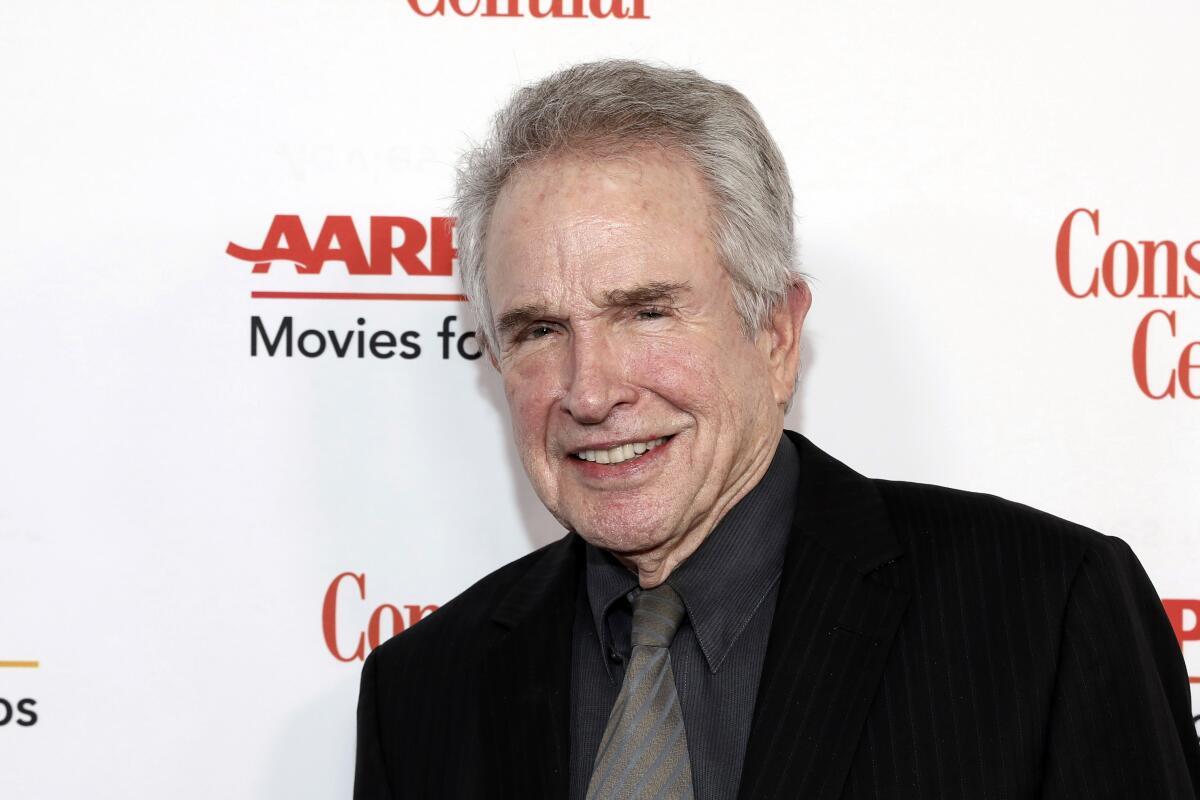Warren Beatty accused of grooming, coercing minor into sex when he was 35

A Louisiana woman is accusing Oscar winner Warren Beatty of sexual battery, sexual assault, molestation and abuse that allegedly occurred in Hollywood when she was 14 years old and he was 35.
In a civil lawsuit filed Monday in Los Angeles Superior Court, Kristina Charlotte Hirsch alleged that the 85-year-old “Bonnie & Clyde” star and several others “used his role, status, and power as a well-known Hollywood Star to gain access to, groom, manipulate, exploit, and coerce sexual contact from her over the course of several months” while she was a minor living in California.
Hirsch said the alleged incidents led her to suffer “severe emotional, physical and psychological distress, including humiliation, shame, and guilt,” according to the complaint, obtained Wednesday by The Times. She also lists issues with trust and control as consequences of the alleged assaults.
Warren Beatty is charming, this much goes without saying.
While she does not explicitly name the “Reds” and “Heaven Can Wait” star-director in the lawsuit — listing him instead as “Defendant Doe” in the complaint — her legal team refers to him as a “renowned and well-known actor and producer,” as well as with several other identifiers.
“By 1973, DEFENDANT DOE had acted in television and several Hollywood films, including portraying Clyde in ‘Bonnie and Clyde,’ a major box-office success that earned DEFENDANT DOE an Academy Award nomination for Best Actor,” the complaint said.
Hirsch’s attorneys, Michael Reck and Matthew Finnegan of Jeff Anderson & Associates, whose firm has handled sex abuse cases involving the Catholic Church and the Boy Scouts of America, did not immediately respond Wednesday to The Times’ requests for comment.
The lawsuit was brought under a 2019 California law that gives victims of child sexual abuse a three-year window to file claims that would have otherwise exceeded the statute of limitations. It also requires that a judge sign off on naming the defendants before the full complaint can be published. Similar lawsuits are initially filed listing the defendants as “DOES” and are later refiled once a judge signs off.
Hirsch’s complaint also lists an additional 49 Does whose true names are not yet known to her and whom she believes to be “agents, representatives and/or employees of each and every other defendant.”
Hirsch alleged that she met Beatty on one of his movie sets in 1973 when she was 14 and he was about 35. A neighbor of hers working on the set brought her along, and Hirsch alleged that Beatty “paid undue attention” to her, “commented repeatedly on her looks, gave her his phone number, and instructed her to call him” when she was near his L.A. hotel, which she did soon after their first meeting.
That year, the “initially thrilled” teenager went to his hotel to spend time with him, and he brought her with him on car rides, offered to help with her homework and spoke to her about losing her virginity on multiple occasions, the complaint said.
The envelope debacle that stole the spotlight from “Moonlight” at the end of the 89th Academy Awards ceremony sparked enough fury and fervor to cement the incident among the great Hollywood dramas of all time.
She alleged that when she was about 14 or 15, Beatty “used his position and status as an adult, and a Hollywood movie star to coerce sexual contact with [her] on multiple occasions, including oral sex, simulated sex and finally coerced sexual intercourse with the minor child.”
Hirsch, who believed herself to be in a romantic relationship with a movie star, said she did not consent to his “intended harmful or offensive contact” at the time.
She is seeking a jury trial, general, special, statutory and punitive damages in an amount to be determined by the court, as well as legal fees.
Representatives for Beatty did not immediately respond Wednesday to The Times’ requests for comment.
Times staff writer Laura J. Nelson contributed to this report.
More to Read
Only good movies
Get the Indie Focus newsletter, Mark Olsen's weekly guide to the world of cinema.
You may occasionally receive promotional content from the Los Angeles Times.












